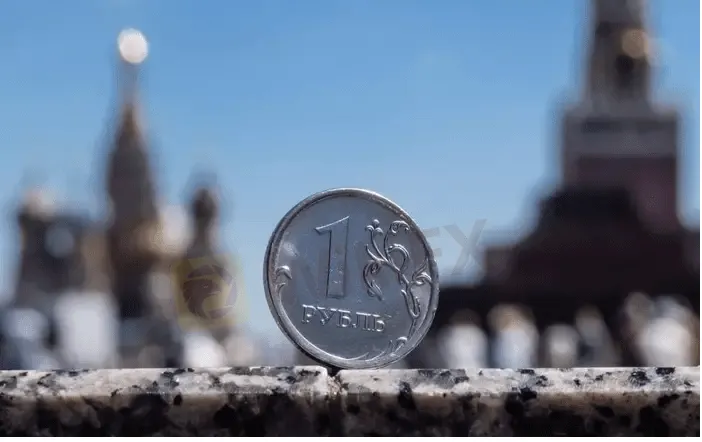简体中文
繁體中文
English
Pусский
日本語
ภาษาไทย
Tiếng Việt
Bahasa Indonesia
Español
हिन्दी
Filippiiniläinen
Français
Deutsch
Português
Türkçe
한국어
العربية
Rouble slips as Putin addresses forum in Russia’s far east
Abstract: The rouble opened weaker on Wednesday, under pressure from lower oil prices, as President Vladimir Putin told an economic forum in Russia’s far east that the West’s futile and aggressive attempts to isolate Russia with sanctions were failing.

At 0748 GMT, the rouble was 0.1% weaker against the dollar at 61.28 and had lost 0.4% to trade at 60.66 versus the euro.
The rouble may test the 61.5 mark to the greenback today against the backdrop of oil prices under pressure, said Promsvyazbank analysts in a note.
This year, the rouble has been the worlds best-performing currency, buoyed by emergency capital controls rolled out by the central bank in a bid to halt a mass sell-off after Feb. 24 when Russia began what it calls “a special military operation” in Ukraine.
This helped to avoid an economic meltdown that many had predicted and has allowed Russian officials to make more positive forecasts about the health of the economy.
In Vladivostok this week, Russias top two banks said the banking sector had overcome the worst in terms of the fallout from sanctions, with VTB CEO Andrei Kostin saying banks likely no longer need capitalisation.
Russian stocks were falling, after the benchmark MOEX index struck a more than four-month high of 2,492.15 points in the previous session.
The index received support last week from gas giant Gazprom which reported record net profit in the first half of 2022 and recommended paying interim dividends after skipping its annual payout for the first time since 1998.
“Russian equities saw profit taking after Moscow Exchange announced it would provide equity market access to non-residents from friendly states from 12 September, triggering overhang fears,” said Alfa Bank Equity Strategist John Walsh in a note.
The rouble-based MOEX Russian index was 0.4% lower at 2,416.1 points. The dollar-denominated RTS index was down 0.8% to 1,242.4 points.

Disclaimer:
The views in this article only represent the author's personal views, and do not constitute investment advice on this platform. This platform does not guarantee the accuracy, completeness and timeliness of the information in the article, and will not be liable for any loss caused by the use of or reliance on the information in the article.
Read more

Shocking! Trump to Double Tariffs on Canada!
Trump announced a tariff hike on Canadian steel and aluminum to 50%, shaking the markets. The Canadian stock market took a hit, the Canadian dollar plummeted, and U.S. steel and aluminum stocks surged, triggering strong reactions from all sides.

Good News for Nigeria's Stock Market: Big Gains for Investors!
Nigeria’s stock market kicked off the trading week with strong momentum, boosting investor assets by ₦52 billion. Market confidence is high, creating a rare investment boom!

Olymp Trade Review 2025: Is It Safe to Trade With?
Founded in 2014, Olymp Trade has been operating for over a decade, expanding its services and user base considerably, now offering focused trading in fixed-time trades (previously known as binary options in some regions) and Forex. Specifically, Olymp Trade operates two trading modes: fixed-time trades and forex mode. Fixed-time trades refer to trades with predetermined expiration times, where traders predict market movement directions. Payouts typically range from 70-90% of the investment amount. Forex Mode is a more traditional forex trading approach with variable leverage (up to 1:500 for experienced traders). At the same time, it allows for more sophisticated trading strategies with customisable take-profit and stop-loss orders.

Gold Trading Insights: Prepare for Moves Above $2,900 Post-CPI
Gain gold trading insights as US CPI nears. Will $2,900 hold or break? Prepare with tariff and geopolitical factors in focus.
WikiFX Broker
Latest News
Plunging Oil Prices Spark Market Fears
Celebrate Ramadan 2025 with WelTrade & YAMarkets
WikiFX App Version 3.6.4 Release Announcement
Indian Watchdog Approves Coinbase Registration in India
SILEGX: Is This a New Scammer on the Block?
How Can Fintech Help You Make Money?
Good News for Nigeria's Stock Market: Big Gains for Investors!
IIFL Capital Faces SEBI's Regulatory Warning
Why Is OKX Crypto Exchange Under EU Probe After Bybit $1.5B Heist?
Gold Trading Insights: Prepare for Moves Above $2,900 Post-CPI
Currency Calculator






